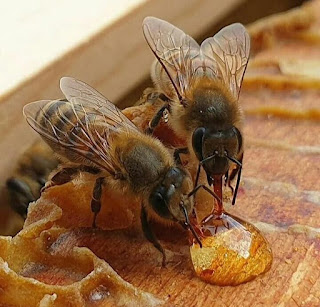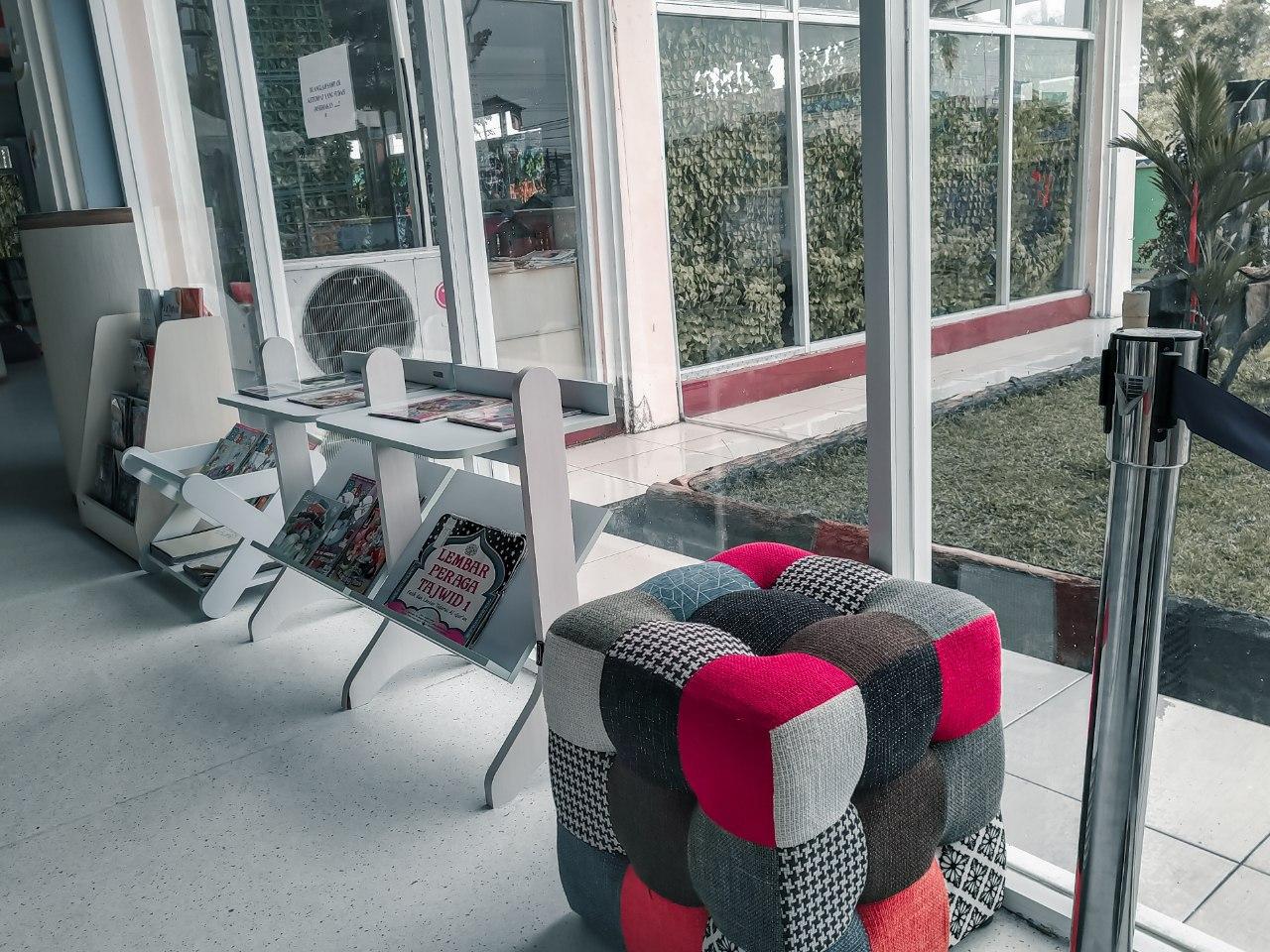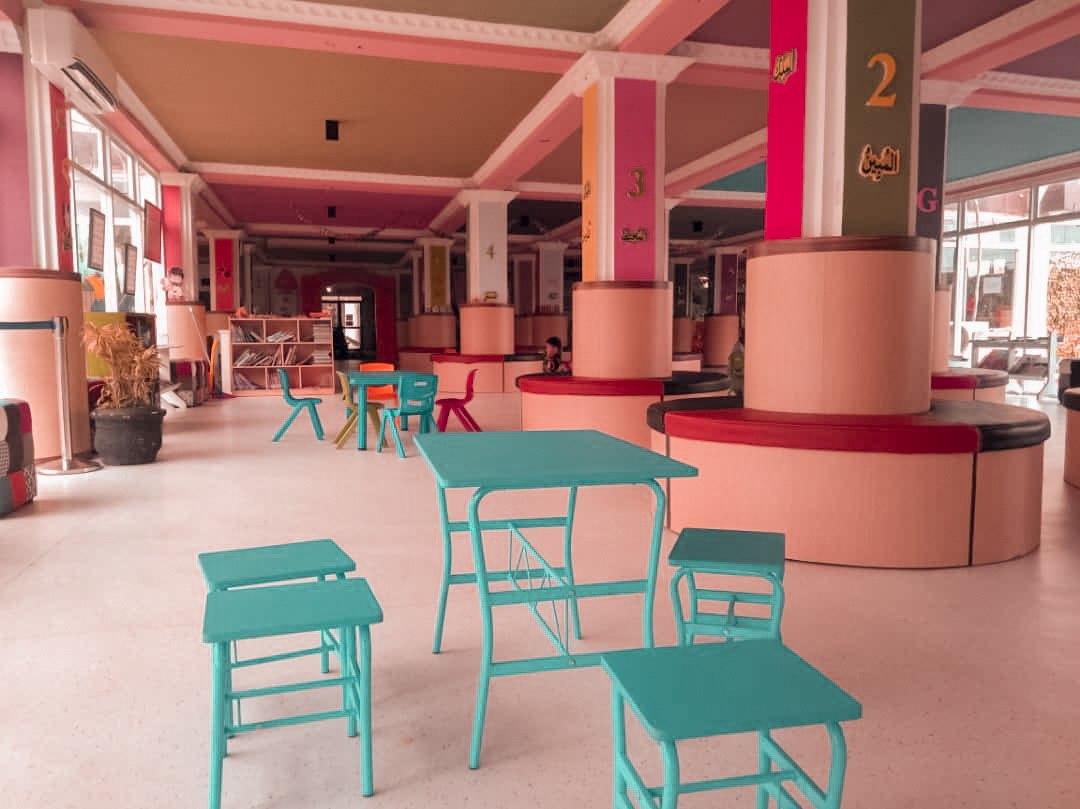GRAMMAR
What is GRAMMAR?
Grammar is a body of rules for speaking or writing and given language
OR…
Grammar is a science that teaches us how to speak, to read and to write correctly
PARTS OF SPEECH
There are eight Parts of Speech (Bagian-bagian dalam Berbicara)
1. NOUN (Benda)
Ex: Table, Chair, Pen, etc.
The book is on the table.
2. PRONOUN (Kata Ganti)
Ex: She, He, They, It
The girl is standing there. She is Ellen.
3. VERB (Kata Kerja)
Ex: Study, Work, Eat, etc.
I am studying hard.
4. ADVERB (Kata Keterangan)
Ex: Correctly, Loudly, Very, etc.
Ben sings loudly.
5. ADJECTIVE (Kata Sifat)
Ex: Beautiful, Big, Clever, etc.
The waitress is beautiful.
6. CONJUCTION (Kata Sambung)
Ex: And, Or.
I and you are friends.
7. INTERJECTION (Kata Seru)
Ex: Hi!, Wow!, Shit!, etc.
Hi, Ellen!
8. PREPOSITION (Kata Depan)
Ex: On, Before, By, etc.
Don’t sit on the table!
GENDER
Gender is the form of the word male or female.
There are four kinds of gender:
1. MASCULINE GENDER
Is the name which has characteristic of male sex.
Ex: Father, Boy, Uncle, etc.
He is my beloved father.
2. FEMININE GENDER
Is the name which has characteristic of female sex.
Ex: Mother, Lady, Woman
She is my beloved mother.
3. COMMON GENDER
Is the name of living thing and can be either male or female.
Ex: People, Student, Parent, etc.
Those are people.
4. NEUTER GENDER
Is the name of non living thing and can be either male or female.
Ex: Chalk, Blackboard, Desk, etc.
The chalk is in the box.
There are three forms of gender:
I. Changing of Ending
Masculine Feminine
Actor Actress
Author Authoress
Waiter Waitress
II. Changing of Words
Masculine Feminine
Boy Girl
Brother Sister
III. Changing of Words, Before and After
After Before
Grandfather, Boyfriend,
Grandmother Girlfriend
Grandnephew,
Grandniece
GERUND
Gender is the verb in -ING form ( Verb + Ing) that has function as a noun. Gerund used as subject, object, complement and modifier noun.
Ex: Cooking, Drawing, Riding, etc.
1. Sebagai Subjek
Ex: Cooking is a good hobby.
2. Sebagai Objek
Ex: I don’t like smoking.
3. Objek Kata Depan (Object of Preposition)
Ex: They are found of climbing mountain.
4. Sebagai Komplemen / Pelengkap
Ex: Mr. Afif‘s favorite sport is bicycle riding.
5. Sebagai Penjelas Noun (Modifier of Noun)
Ex: The waiting room is very large.
6. Menyatakan Larangan
Ex: No Smoking!
Note: Ada beberapa kata kerja yang harus diikuti oleh gerund, yaitu:
Mind Enjoy
Finish Risk
Forgive Suggest
Allow Miss
Understand Postpone
Appreciate Quit
Avoid
Consider
Delay
Discuss
Ex: I don’t understand answering the questions.
I consider going to Duta Mall.
TENSES
1) SIMPLE PRESENT TENSE
(+) I eat the rice
(–) I do not eat the rice
(?) Do I eat the rice?
2) SIMPLE PAST TENSE
(+) I ate the rice
(–) I did not eat the rice
(?) Did I eat the rice?
3) PRESENT PROGRESS TENSE
(+) I am eating the rice
(–) I am not eating the rice
(?) Am I eating the rice?
4) PAST PROGRESS TENSE
(+) I was eating the rice
(–) I was not eating the rice
(?) Was I eating the rice?
5) PRESENT PERFECT TENSE
(+) I have eaten the rice
(–) I have not eaten the rice
(?) Have I eaten the rice?
6) PAST PERFECT TENSE
(+) I had eaten the rice
(–) I had not eaten the rice
(?) Had I eaten the rice?
7) PRESENT PERFECT PROGRESS TENSE
(+) I have been eating the rice
(–) I have not been eating the rice
(?) Have I been eating the rice?
8) PAST PERFECT PROGRESS TENSE
(+) I had been eating the rice
(–) I had not eating the rice
(?) Had I been eating the rice?
9) FUTURE TENSE
(+) I will eat the rice
(–) I will not eat the rice
(?) Will I eat the rice?
10) PAST FUTURE TENSE
(+) I would eat the rice
(–) I would not eat the rice
(?) Would I eat the rice?
11) FUTURE PROGRESS TENSE
(+) I will be eating the rice
(–) I will not be eating the rice
(?) Will I be eating the rice?
12) PAST FUTURE PROGRESS TENSE
(+) I would be eating the rice
(–) I would not be eating the rice
(?) Would I be eating the rice?
13) FUTURE PERFECT TENSE
(+) I will have eaten the rice
(–) I will not have eaten the rice
(?) Will I have eaten the rice?
14) PAST FUTURE PERFECT TENSE
(+) I would have eaten the rice
(–) I would not have eaten the rice
(?) Would I have eaten the rice?
15) FUTURE PERFECT PROGRESS TENSE
(+) I will have been eating the rice
(–) I will not have been eating the rice
(?) Will I have been eating the rice?
16) PAST FUTURE PERFECT PROGRESS TENSE
(+) I would have been eating the rice
(–) I would have not been eating the rice
(?) Would I have been eating the rice?
RUMUS TENSES
1) S + V1 + O
2) S + V2 + O
3) S + am/is/are + V1 + ing + O
4) S + was/were + V1 + ing + O
5) S + have/has + V3 + O
6) S + had + V3 + O
7) S + have/has + been + V1 + ing + O
8) S + had + been + V1 + ing + O
9) S + will/shall + V1 + O
10) S + would/should + V1 + O
11) S + will/shall + be + V1 + ing + O
12) S + would/should + be + V1 + ing + O
13) S + will/shall + have + V3 + O
14) S + would/should + have + V3 + O
15) S + will/shall + have + been + V1 + ing + O
16) S + would/should + have + been + V1 + ing + O
Note: I → am, was,
You, We → are, were
She, He, It → is, was
(Do not: Don’t, Did not: Didn’t, Will not: Won’t, Shall not: Shan’t, Would not: Wouldn’t, Should not: Shouldn’t)
Kalimat terbagi menjadi dua, yaitu
1. NOMINAL SENTENCE (Kalimat Nominal)
Yang dimaksud dengan Kalimat Nominal adalah kalimat yang predikatnya tidak terdiri dari kata kerja, ex:
I am a student (Noun)
My Father is handsome (Adjective)
Mr. Afif is there (Adverb of Place)
It’s sevent o’clock (Adverb of Time)
2. VERB SENTENCE (Kalimat Verbal)
Yang dimaksud dengan Kalimat Verbal adalah kalimat yang predikatnya terdiri dari kata kerja. Kalimat verbal terbagi menjadi dua, yaitu:
a) TRANSITIVE SENTENCE
Kalimat Tarnsitif adalah kalimat yang predikatnya memerlukan objek.
Ex:
I am writing the letter
Rina is singing a song
Deni and Doni are playing tennis
b) INTRANSITIVE SENTENCE
Kalimat Intransitif adalah kalimat yang predikatnya tidak memerlukan objek.
Ex:
I am trying to reach you
Mr. Afif is praying to the God
The boys are going to school
CONDITIONAL SENTENCE
Conditional sentence memiliki tiga tipe
1. Type I ( Simple present + Simple future)
Ex:
If I have much money, I will buy a car
If I go, I will arrive
2. Type II (Simple past tense + Past future)
Ex:
If I had much money, I would buy a car
If I went, I would buy a car
3. Type III (Past perfect + Past future perfect)
Ex:
If I had had much money, I would have bought a car
If I had gone, I would have arrived
*Conditional sentence terbagi menjadi dua, yaitu Real Condition dan Unreal Condition.
1. REAL CONDITION (Type I)
Habit → If it rains, I drive
Future → If it rains, I will drive
Command → If it rains, drive!
2. UNREAL CONDITION (Type II & III)
Dan biasanya dalam kalimat pengandaian, yang dipakai adalah type II
Grammar is a body of rules for speaking or writing and given language
OR…
Grammar is a science that teaches us how to speak, to read and to write correctly
PARTS OF SPEECH
There are eight Parts of Speech (Bagian-bagian dalam Berbicara)
1. NOUN (Benda)
Ex: Table, Chair, Pen, etc.
The book is on the table.
2. PRONOUN (Kata Ganti)
Ex: She, He, They, It
The girl is standing there. She is Ellen.
3. VERB (Kata Kerja)
Ex: Study, Work, Eat, etc.
I am studying hard.
4. ADVERB (Kata Keterangan)
Ex: Correctly, Loudly, Very, etc.
Ben sings loudly.
5. ADJECTIVE (Kata Sifat)
Ex: Beautiful, Big, Clever, etc.
The waitress is beautiful.
6. CONJUCTION (Kata Sambung)
Ex: And, Or.
I and you are friends.
7. INTERJECTION (Kata Seru)
Ex: Hi!, Wow!, Shit!, etc.
Hi, Ellen!
8. PREPOSITION (Kata Depan)
Ex: On, Before, By, etc.
Don’t sit on the table!
GENDER
Gender is the form of the word male or female.
There are four kinds of gender:
1. MASCULINE GENDER
Is the name which has characteristic of male sex.
Ex: Father, Boy, Uncle, etc.
He is my beloved father.
2. FEMININE GENDER
Is the name which has characteristic of female sex.
Ex: Mother, Lady, Woman
She is my beloved mother.
3. COMMON GENDER
Is the name of living thing and can be either male or female.
Ex: People, Student, Parent, etc.
Those are people.
4. NEUTER GENDER
Is the name of non living thing and can be either male or female.
Ex: Chalk, Blackboard, Desk, etc.
The chalk is in the box.
There are three forms of gender:
I. Changing of Ending
Masculine Feminine
Actor Actress
Author Authoress
Waiter Waitress
II. Changing of Words
Masculine Feminine
Boy Girl
Brother Sister
III. Changing of Words, Before and After
After Before
Grandfather, Boyfriend,
Grandmother Girlfriend
Grandnephew,
Grandniece
GERUND
Gender is the verb in -ING form ( Verb + Ing) that has function as a noun. Gerund used as subject, object, complement and modifier noun.
Ex: Cooking, Drawing, Riding, etc.
1. Sebagai Subjek
Ex: Cooking is a good hobby.
2. Sebagai Objek
Ex: I don’t like smoking.
3. Objek Kata Depan (Object of Preposition)
Ex: They are found of climbing mountain.
4. Sebagai Komplemen / Pelengkap
Ex: Mr. Afif‘s favorite sport is bicycle riding.
5. Sebagai Penjelas Noun (Modifier of Noun)
Ex: The waiting room is very large.
6. Menyatakan Larangan
Ex: No Smoking!
Note: Ada beberapa kata kerja yang harus diikuti oleh gerund, yaitu:
Mind Enjoy
Finish Risk
Forgive Suggest
Allow Miss
Understand Postpone
Appreciate Quit
Avoid
Consider
Delay
Discuss
Ex: I don’t understand answering the questions.
I consider going to Duta Mall.
TENSES
1) SIMPLE PRESENT TENSE
(+) I eat the rice
(–) I do not eat the rice
(?) Do I eat the rice?
2) SIMPLE PAST TENSE
(+) I ate the rice
(–) I did not eat the rice
(?) Did I eat the rice?
3) PRESENT PROGRESS TENSE
(+) I am eating the rice
(–) I am not eating the rice
(?) Am I eating the rice?
4) PAST PROGRESS TENSE
(+) I was eating the rice
(–) I was not eating the rice
(?) Was I eating the rice?
5) PRESENT PERFECT TENSE
(+) I have eaten the rice
(–) I have not eaten the rice
(?) Have I eaten the rice?
6) PAST PERFECT TENSE
(+) I had eaten the rice
(–) I had not eaten the rice
(?) Had I eaten the rice?
7) PRESENT PERFECT PROGRESS TENSE
(+) I have been eating the rice
(–) I have not been eating the rice
(?) Have I been eating the rice?
8) PAST PERFECT PROGRESS TENSE
(+) I had been eating the rice
(–) I had not eating the rice
(?) Had I been eating the rice?
9) FUTURE TENSE
(+) I will eat the rice
(–) I will not eat the rice
(?) Will I eat the rice?
10) PAST FUTURE TENSE
(+) I would eat the rice
(–) I would not eat the rice
(?) Would I eat the rice?
11) FUTURE PROGRESS TENSE
(+) I will be eating the rice
(–) I will not be eating the rice
(?) Will I be eating the rice?
12) PAST FUTURE PROGRESS TENSE
(+) I would be eating the rice
(–) I would not be eating the rice
(?) Would I be eating the rice?
13) FUTURE PERFECT TENSE
(+) I will have eaten the rice
(–) I will not have eaten the rice
(?) Will I have eaten the rice?
14) PAST FUTURE PERFECT TENSE
(+) I would have eaten the rice
(–) I would not have eaten the rice
(?) Would I have eaten the rice?
15) FUTURE PERFECT PROGRESS TENSE
(+) I will have been eating the rice
(–) I will not have been eating the rice
(?) Will I have been eating the rice?
16) PAST FUTURE PERFECT PROGRESS TENSE
(+) I would have been eating the rice
(–) I would have not been eating the rice
(?) Would I have been eating the rice?
RUMUS TENSES
1) S + V1 + O
2) S + V2 + O
3) S + am/is/are + V1 + ing + O
4) S + was/were + V1 + ing + O
5) S + have/has + V3 + O
6) S + had + V3 + O
7) S + have/has + been + V1 + ing + O
8) S + had + been + V1 + ing + O
9) S + will/shall + V1 + O
10) S + would/should + V1 + O
11) S + will/shall + be + V1 + ing + O
12) S + would/should + be + V1 + ing + O
13) S + will/shall + have + V3 + O
14) S + would/should + have + V3 + O
15) S + will/shall + have + been + V1 + ing + O
16) S + would/should + have + been + V1 + ing + O
Note: I → am, was,
You, We → are, were
She, He, It → is, was
(Do not: Don’t, Did not: Didn’t, Will not: Won’t, Shall not: Shan’t, Would not: Wouldn’t, Should not: Shouldn’t)
Kalimat terbagi menjadi dua, yaitu
1. NOMINAL SENTENCE (Kalimat Nominal)
Yang dimaksud dengan Kalimat Nominal adalah kalimat yang predikatnya tidak terdiri dari kata kerja, ex:
I am a student (Noun)
My Father is handsome (Adjective)
Mr. Afif is there (Adverb of Place)
It’s sevent o’clock (Adverb of Time)
2. VERB SENTENCE (Kalimat Verbal)
Yang dimaksud dengan Kalimat Verbal adalah kalimat yang predikatnya terdiri dari kata kerja. Kalimat verbal terbagi menjadi dua, yaitu:
a) TRANSITIVE SENTENCE
Kalimat Tarnsitif adalah kalimat yang predikatnya memerlukan objek.
Ex:
I am writing the letter
Rina is singing a song
Deni and Doni are playing tennis
b) INTRANSITIVE SENTENCE
Kalimat Intransitif adalah kalimat yang predikatnya tidak memerlukan objek.
Ex:
I am trying to reach you
Mr. Afif is praying to the God
The boys are going to school
CONDITIONAL SENTENCE
Conditional sentence memiliki tiga tipe
1. Type I ( Simple present + Simple future)
Ex:
If I have much money, I will buy a car
If I go, I will arrive
2. Type II (Simple past tense + Past future)
Ex:
If I had much money, I would buy a car
If I went, I would buy a car
3. Type III (Past perfect + Past future perfect)
Ex:
If I had had much money, I would have bought a car
If I had gone, I would have arrived
*Conditional sentence terbagi menjadi dua, yaitu Real Condition dan Unreal Condition.
1. REAL CONDITION (Type I)
Habit → If it rains, I drive
Future → If it rains, I will drive
Command → If it rains, drive!
2. UNREAL CONDITION (Type II & III)
Dan biasanya dalam kalimat pengandaian, yang dipakai adalah type II




Komentar
Posting Komentar